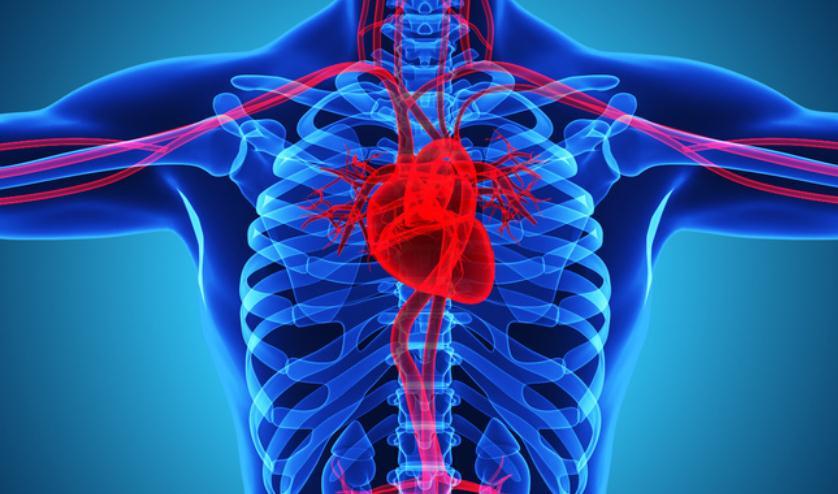daily economic news
2022-10-05 17:20:18
影视
影视
贵州茅台 -0.3%
影视 +0.3%
影视影
影视视影视
Each edited by Li Zedong
October 5, “The new coronavirus can directly affect the heart’s DNA“The topic was the first in hot research.
According to a report from the Xinhua News Agency on Oct. 5, the University of Queensland in Australia recently posted a message saying:A new study sheds light on how the new coronavirus affects the heart and how it differs from that of the flu virus, providing ideas for treating heart damage caused by the new coronavirus infection.

Image Source: Photo Network ID: 401756137
expert:The new coronavirus could directly affect the heart’s DNA
The research, led by the University of Queensland, was published in the monthly journal Immunology. Study co-author Dr Kulasingha of the University of Queensland said: “Compared to the 2009 flu pandemic,COVID-19 leads to more serious and long-term cardiovascular disease, but at the molecular level it is not clear what causes this phenomenon. “
According to reports, the new study used heart tissue samples collected from the remains of 7 patients with new crown, 2 patients with influenza and 6 patients from the control group for analysis.
The results showed that the researchers found stronger inflammation in heart samples from patients with influenza, while tissue changes related to deoxyribonucleic acid (DNA) damage and repair were found in heart samples from patients with COVID-19. The researchers said,The new coronavirus is likely to have a direct effect on the heart’s DNA, not just triggering a chain reaction of inflammation.

On May 17, 2022, pedestrians pass a new coronavirus test site in Times Square in New York, United States.(Photo by Xinhua News Agency reporter Wang Ying)
DNA damage and repair mechanisms can destabilize the genome, Kurasimha said.It has also been linked to chronic diseases such as diabetes, cancer, atherosclerosis, and neurodegenerative diseases.
University of Queensland professor John Fraser said the study, which showed that the new coronavirus and the flu virus have different effects on heart tissue, provided further evidence that the new coronavirus was not “flu-like. “. In the future, the team hopes to conduct in-depth investigations through larger cohort studies.
“Nature”: the risk of cardiovascular disease may increase after infection with the new crown and the risk of severe patients increases at least 20 times
According to Meijing.com, on August 2, the leading international scientific journal “Nature” published an article titled “Risk of heart disease after the new corona: what the data show”.People infected with the new coronavirus are at high risk of developing cardiovascular problems such as heart attack or stroke, even months after recovery.
In a research paper published this year, researchers used data from 150,000 cured COVID-19 patients and uninfected colleagues recorded by the U.S. Department of Veterans Affairs to estimate the frequency of cardiovascular problems caused by the virus and look for to understand which patients have the greatest risk of cardiovascular disease addressed, the duration of the risk and the causes of these symptoms.
reveal itself,The risk of developing 20 cardiovascular diseases, including heart disease and stroke, increased significantly in the year following a patient contracted the novel coronavirus.These complications can also occur in patients who fully recover from mild infections, the researchers said.

Image source: Photo Network-401673686
Risk of cardiovascular disease in patients with severe Covid-19 in the coming year, the study showssubstantiallyIn addition, seriously ill patients face at least a 20 times greater risk than their uninfected peers for cardiovascular diseases such as swelling of the heart and blood clots in the lungs.In addition to this, there has been an increased risk of Covid-19 patients who have never been hospitalized. For example, the heart attack rate increased by 8% and the heart inflammation rate increased by 247%.
According to Ziyad Al-Aly, a professor of epidemiology at Washington University in St. Louis who led the study, there is growing evidence that the novel coronavirus can permanently alter the health of some groups. According to Nature, these changes fall into the category of acute COVID-19 sequelae, which also cover some long-term symptoms of COVID-19. Several other studies have previously suggested that the novel coronavirus may increase the risk of certain long-term diseases, such as diabetes, persistent lung damage, and even brain damage.
Furthermore, many other studies point in the same direction as the previous ones. For example, a study in the UK showed thisPatients admitted to hospital with Covid-19 have about three times the risk of serious cardiovascular problems within 8 months of admission compared to non-infected people; patients also had an approximately 2.5-fold increased risk of developing congestive heart failure.
However, despite the large scale of the studies cited above, there are some limitations. The research is observational, which means that data collected for other purposes is reused and this approach may have some cognitive bias.
Eric Topol, a genomics expert at the Scripps Research Institute in La Jolla, California, also recognized the study’s limitations and said more research is needed before scientists can truly quantify how often cardiovascular problems occur.
Daily Economic News Xinhua Comprehensive News Agency, Meijing Network (Reporter Wen Qiao)
Source of the cover image: Photo Network-401673686


